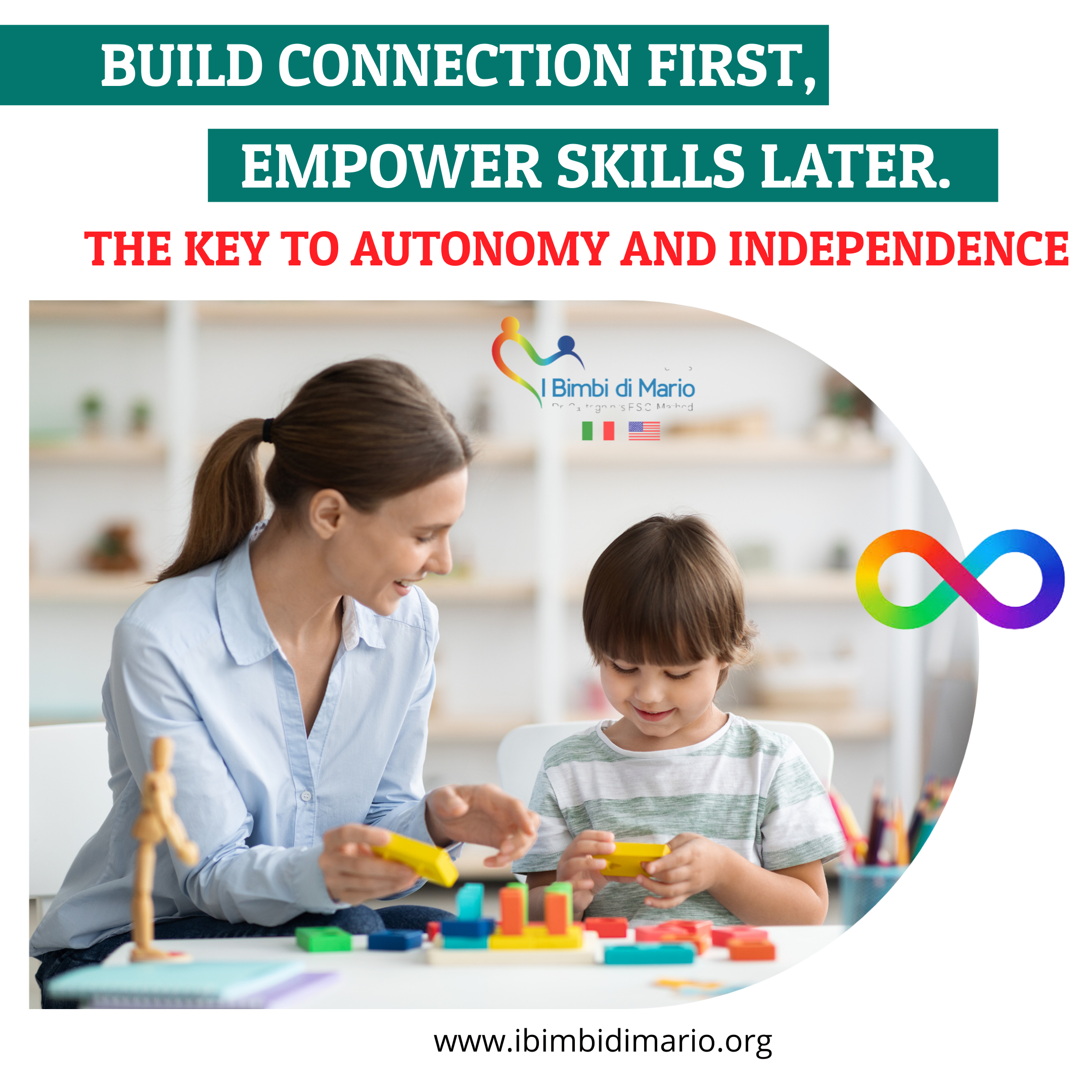
 “Every meaningful learning experience stems from a solid educational relationship.”
“Every meaningful learning experience stems from a solid educational relationship.”
 When working with children with learning difficulties, including non-verbal ones, our ultimate goal remains the same: fostering Indipendence and Autonomy.But this journey begins with a relationship built on trust, active listening and mutual respect..
When working with children with learning difficulties, including non-verbal ones, our ultimate goal remains the same: fostering Indipendence and Autonomy.But this journey begins with a relationship built on trust, active listening and mutual respect..
 Why is an educational relationship the foundation of everything?
Why is an educational relationship the foundation of everything?
 Emotional security: Children learn best when they feel welcomed and free from judgment.
Emotional security: Children learn best when they feel welcomed and free from judgment.
 Motivation: A positive relationship ignites their curiosity and confidence in their abilities.
Motivation: A positive relationship ignites their curiosity and confidence in their abilities.
 Personalization: Truly understanding a child allows us to tailor strategies to their unique needs and goals.
Personalization: Truly understanding a child allows us to tailor strategies to their unique needs and goals.
 Total inclusivity: This approach works at any starting level, even with non-verbal children or individuals.
Total inclusivity: This approach works at any starting level, even with non-verbal children or individuals.
 How can we create meaningful educational relationships?
How can we create meaningful educational relationships?
 Listen attentively and embrace their stories and struggles without rushing.
Listen attentively and embrace their stories and struggles without rushing.
 Recognize their strengths beyond their challenges.
Recognize their strengths beyond their challenges.
 Work together on small, realistic goals.
Work together on small, realistic goals.
 Create an environment where they feel free to make mistakes.
Create an environment where they feel free to make mistakes.
 Before asking a child to overcome a challenge, let them feel they’re not alone in the process.
Before asking a child to overcome a challenge, let them feel they’re not alone in the process.
Change becomes possible only within a positive relationship.
As Prof. Reuven Feuerstein has taught us for decades:“Cognition and emotion are two sides of the same coin, and the coin is transparent.” This reminds us that emotions and cognitive processes are deeply intertwined, shaping and influencing learning together.
 What strategies do you use to build meaningful connections with your students, patients, or children?
What strategies do you use to build meaningful connections with your students, patients, or children?
Dr. Maria Signorile

